Home > Mental care principles > #1 Medications > Part 2: Types of medications
#1 Medications
Part 2: Types of medications

Psychiatric medications
According to the National Institute of Mental Health (NIMH), five common types of psychiatric medications are used today. [1]
- Antidepressants: Treat depression, anxiety, pain, insomnia, ADHD.
- Anti-Anxiety Medications: Reduce symptoms of anxiety, panic attacks.
- Stimulants: Treat attention deficit disorder.
- Antipsychotics: Treat psychotic symptoms, such as delusions, hallucinations, and schizophrenia.
- Mood Stabilizers: - Treat bipolar disorder and mood swings.
The table below shows the top 10 psychiatric medications prescribed in the U.S. in 2013, extracted from an article by PsychCentral. [2] For further details and an explanation of each drug, the drug names and images of their bottles are hyperlinked to NAMI's drug information at the National Alliance of Mental Illness (except Desyrel, which has a link to MedlinePlus).
| Rank | Brand (Generic) | Main purpose | Type | U.S. Prescription |
| 1 | Xanax (Alprazolam) | Anxiety | Benzodiazepine | 48.5 millions |
| 2 | Zoloft (Sertraline) | Depression | SSRI | 41.4 millions |
| 3 | Celexa (Citalopram) | Depression | SSRI | 39.4 millions |
| 4 | Prozac (Fluoxetine HCL) | Depression | SSRI | 28.2 millions |
| 5 | Ativan (Lorazepam) | Anxiety | Benzodiazepine | 27.9 millions |
| 6 | Desyrel (Trazodone HCL) | Depression | SARI | 26.2 millions |
| 7 | Lexapro (Escitalopram) | Depression | SSRI | 24.9 millions |
| 8 | Cymbalta (Duloxetine) | Depression | SNRI | 18.6 millions |
| 9 | Wellbutrin XL (Bupropion HCL XL) | Depression | NDRI | 16.1 millions |
| 10 | Effexor ER (Venlafaxine HCL ER) | Depression | SNRI | 15.8 millions |
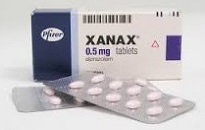
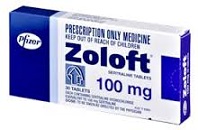
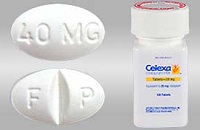
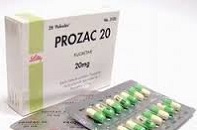
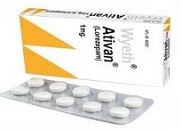
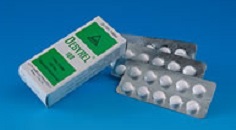
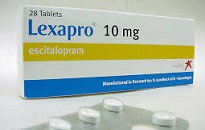
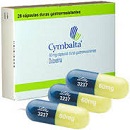

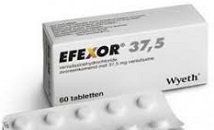
Notice that eight of the ten medications are anti-depressants. In fact, according to a government study, roughly one in ten Americans take antidepressants, which are the third most commonly prescribed drug for Americans (after cholesterol treatments and pain-killers). [3] Disturbingly, 80% of antidepressants were prescribed by non-psychiatrists without any accompanying psychiatric diagnosis. [4]
Notice also that seven out of eight antidepressants target the neurotransmitter serotonin, while the other type targets the other neurotransmitters, norepinephrine and dopamine. All these drug types—SSRI (Selective Serotonin Reuptake Inhibitor), SARI (Serotonin Antagonist and Reuptake Inhibitor), SNRI (Serotonin Norepinephrine Reuptake Inhibitor), and NDRI (Norepinephrine Dopamine Reuptake Inhibitor)—share the same principle. Although the exact mechanism is still unknown, the current hypothesis is that limiting the ability to reabsorb neurotransmitters at the transmitter side of synaptic cells (called reuptake) increases the level at the receiving end of synaptic cells. [5][6]
For anti-anxiety, Benzodiazepines (BZD) has been the primary substance for treatment.
Other commonly used medications are Abilify, Seroquel, Risperdal, and Zyprexa for bipolar disorders and schizophrenia. For attention deficit disorders, Vyvanse, Concerta, generic Amphetamine salts, and generic Methylphenidate are often used. For panic disorders, the same anti-anxiety medications are commonly prescribed. Also, there are special types of medications for alcoholism treatment (acamprosate, naltrexone) and heroin detoxification (methadone, buprenorphine). Other diagnosed symptoms like OCD, PTSD, and PMDD are treated with the same medications used for the other major symptoms. [7]
For details on specific drugs, MedlinePlus and NAMI are good, reliable sources.
- For further search and exploration, use the search keywords "psychiatric medication."
[1] NIMH Web Site. Link
[2] Grohol, J. (2015). Top 25 Psychiatric Medication Prescriptions for 2013. Psych Central. Retrieved on May 12, 2016. Link
[3] Pratt LA, Brody DJ, Gu Q. Antidepressant use in persons aged 12 and over: United States, 2005–2008. NCHS data brief. National Center for Health Statistics. 2011. Link
[4] Mojtabai R. Olfson M. Proportion Of Antidepressants Prescribed Without A Psychiatric Diagnosis Is Growing. Health Affairs. 2011;30(8):1434-1442. Link
[5] Selective serotonin reuptake inhibitor. Wikipedia. Retrieved on May 12, 2016. Link
[6] Norepinephrine?dopamine reuptake inhibitor. Wikipedia. Retrieved on May 12, 2016. Link
[7] Psychoactive Drug. Wikipedia. Retrieved on May 12, 2016. Link
Supplements
The list below shows popular supplements for mental health, extracted from an article at Be Brain Fit. [8]
- DHA (Docosahexaenoic acid) (e.g., omega-3 fatty acid, fish oil)
- Citicoline
- Curcumin (active ingredient in turmeric)
- Acetylcarnitine (ALC)
- Phosphatidylserine (PS)
- Vinpocetine
- Alpha GPC
- Bacopa Monnieri
- Huperzine A
- Ginkgo Biloba
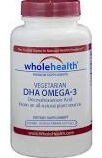
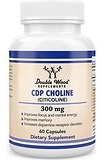

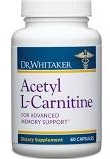

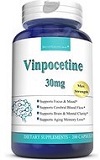
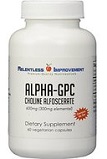


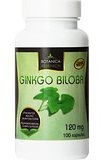
Vitamins, minerals, and amino acids are also popular as supplements for mental health. The list below is from an article at Everyday Health.[9]
- Vitamin B-12
- Vitamin C
- Vitamin D
- Amino Acids
- Calcium
- Magnesium
- GABA
- Melatonin
- Probiotics
- SAM-e (S-adenosylmethionine)
Supplements are a big business. According to a study by the National Center for Health Statistics published in 2009, Americans spend $34 billion annually on complementary and alternative remedies, $7 billion on vitamin supplements, and 14.8 billion on nonvitamin, nonmineral, natural products (e.g. fish oil, glucosamine).[10]
- For further search and exploration, use the search keywords "mental health supplements."
[8] Alban, D. Top 10 Brain Supplements for a Mental Edge. Be Brain Fit. Retrieved on May 12, 2016. Link
[9] Borchard T. 12 Patient-Approved Natural Supplements for Depression. Everyday Health. Retrieved on May 12, 2016. Link
[10] Nahin, RL. Barnes PM. Stussman BJ. Bloom B. Costs of Complementary and Alternative Medicine (CAM) and Frequency of Visits to CAM Practitioners: United States, 2007. National health statistics reports; no 18. Hyattsville, MD: National Center for Health Statistics. 2009. Link
Efficacy and risks of medications
The efficacy and risks of using specific medications and supplements are well documented and readily accessible at trustworthy websites such as FDA, NIMH, NAMI, MedlinePlus, and drugs.com.
